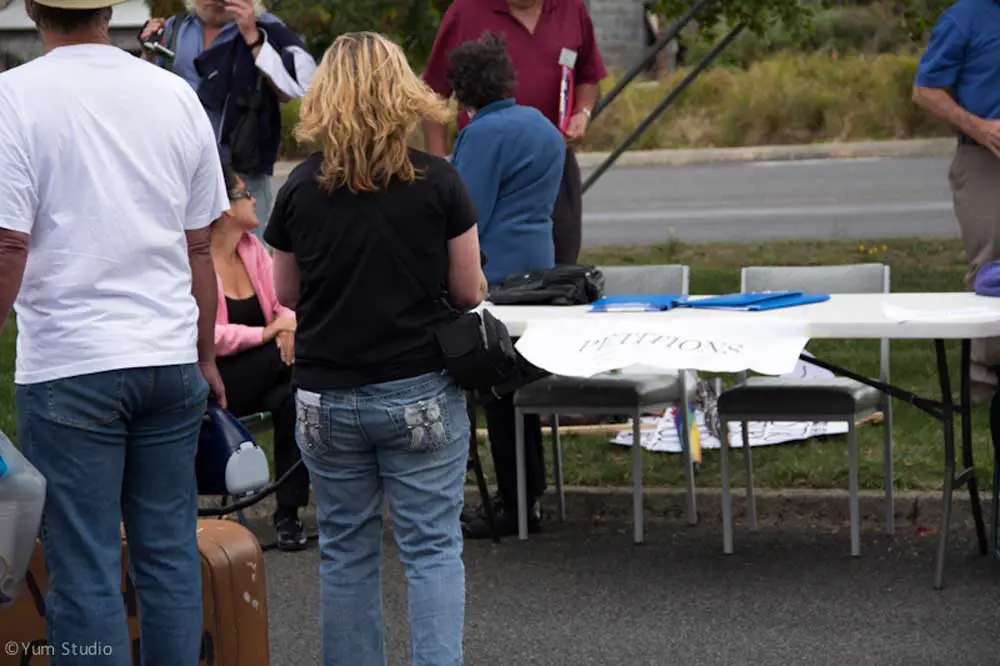
Backers of proposed constitutional amendments and voting-rights groups are appealing after a federal district judge last month refused to block parts of a new Florida law that placed additional restrictions on the state’s ballot-initiative process.
The League of Women Voters of Florida, the League of United Latin American Citizens and two individual plaintiffs filed a notice Friday that was a first step in appealing to the 11th U.S. Circuit Court of Appeals. The Florida Decides Healthcare and FloridaRighttoCleanWater.org political committees, which are trying to put proposals on the 2026 ballot, and individual plaintiffs filed similar notices July 25.
The notices are something of a counter to an appeal filed July 11 by Secretary of State Cord Byrd and Attorney James Uthmeier, the defendants in the lawsuit. Byrd and Uthmeier want the Atlanta-based appeals court to overturn a decision by U.S. District Judge Mark Walker that blocked one part of the law.
The law, passed this spring by the Republican-controlled Legislature and signed by Gov. Ron DeSantis, addressed multiple issues related to the initiative process.
In his July 8 decision, Walker issued a preliminary injunction against part of the law that seeks to ban non-Florida residents and non-U.S. citizens from collecting and delivering petitions. That’s the decision Byrd and Uthmeier are appealing.
But Walker refused to block other parts of the law, such as registration requirements for volunteers who collect more than 25 petition signatures.
While the notices of appeal don’t detail arguments the law’s opponents will make at the appeals court, they wanted Walker to issue an injunction against such things as the registration requirement.
Florida Decides Healthcare, a political committee sponsoring a proposed constitutional amendment aimed at expanding Medicaid coverage, filed the lawsuit in May. It was joined by Smart & Safe Florida, a committee trying to pass a recreational-marijuana amendment, and FloridaRighttoCleanWater.org, which wants to put a right to clean water in the state Constitution.
The voting-rights groups, which support ballot initiatives, also joined the case.
DeSantis sought additional restrictions on the initiative process after he successfully led efforts last year to defeat proposed constitutional amendments on abortion rights and recreational marijuana. The new law also came after years of efforts by state Republican leaders and groups such as the Florida Chamber of Commerce to make it harder to amend the Constitution.
Supporters of this year’s law said it was designed to help prevent fraud. But detractors said it was aimed at shutting down ballot initiatives.
Now, the appeals court will have to wade through appeals on different issues — in what are known as cross appeals — after Walker’s decision.
The judge ruled, for example, that preventing non-Florida residents and non-U.S. citizens from collecting petition signatures violated speech rights.
But on the other side, he ruled against the law’s opponents on issues such requiring unpaid volunteers to register with the state. Walker said he did not think that requirement violated First Amendment rights.
“The tenor of plaintiffs’ evidence concerning these additional efforts … suggested any burden on volunteers with respect to petition circulation is a step too far. Not so,” Walker wrote. “In short, plaintiffs have not demonstrated, at this juncture, that the registration requirements pose an impermissibly severe burden on speech.”
–Jim Saunders, News Service of Florida





























Laurel says
Republicans have not yet proved all the supposed “fraud” they claim, but that doesn’t matter. They simply want full control. They could not care less about We the People.
The real Republicans either get pushed out, threatened or can’t stand it anymore and leave their position.
Sad state of affairs. I prefer balance.
Deborah Coffey says
Good! Hope the 11th Circuit doesn’t give in to the Fascists.